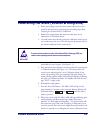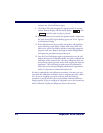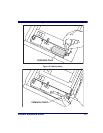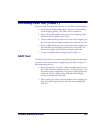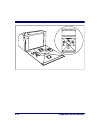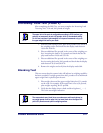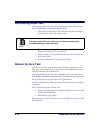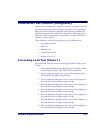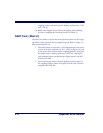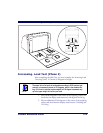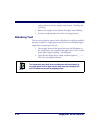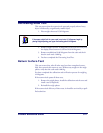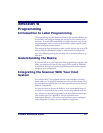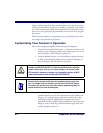
3URGXFW5HIHUHQFH*XLGH 5-13
&DOLEUDWLRQ9HULILFDWLRQ.LORJUDPV
Once you have completed the calibration sequence, you may be required
to perform these step-by-step verification procedures. These procedures
follow the National Institute of Standards and Technology Handbook-44
guidelines for grocery scale installations. You may be required by state or
local law to have these procedures performed by a certified technician or
verified by a proper official.
These calibration verification procedures cover five different tests:
•Increasing-Load Test
• Shift Test
•Blanking Test
• Decreasing-Load Test
•Return to Zero Test
,QFUHDVLQJ/RDG7HVW3KDVH
This test checks Scale operation for increasing loads from 0.100 kg and
7.50 kg.
1. Check that the display reads 0.000 kg when at rest with nothing
on the weighing surface. (The Yellow LED is steadily lit).
2. Place a 100 gram weight on the center of the weighing surface
and check that the display reads 0.100 kg.
3. Place an additional 200 grams on the center of the weighing sur-
face and check that the display reads 0.300 kg.
4. Place an additional 200 grams on the center of the weighing sur-
face and check that the display reads 0.500 kg.
5. Place an additional 100 grams on the center of the weighing sur-
face and check that the display reads 0.600 kg.
6. Place an additional 100 grams on the center of the weighing sur-
face and check that the display reads 0.700 kg.
7. Place an additional 100 grams on the center of the weighing sur-
face and check that the display reads 0.800 kg.
8. Place an additional 200 grams on the center of the weighing sur-
face and check that the display reads 1.000 kg.



